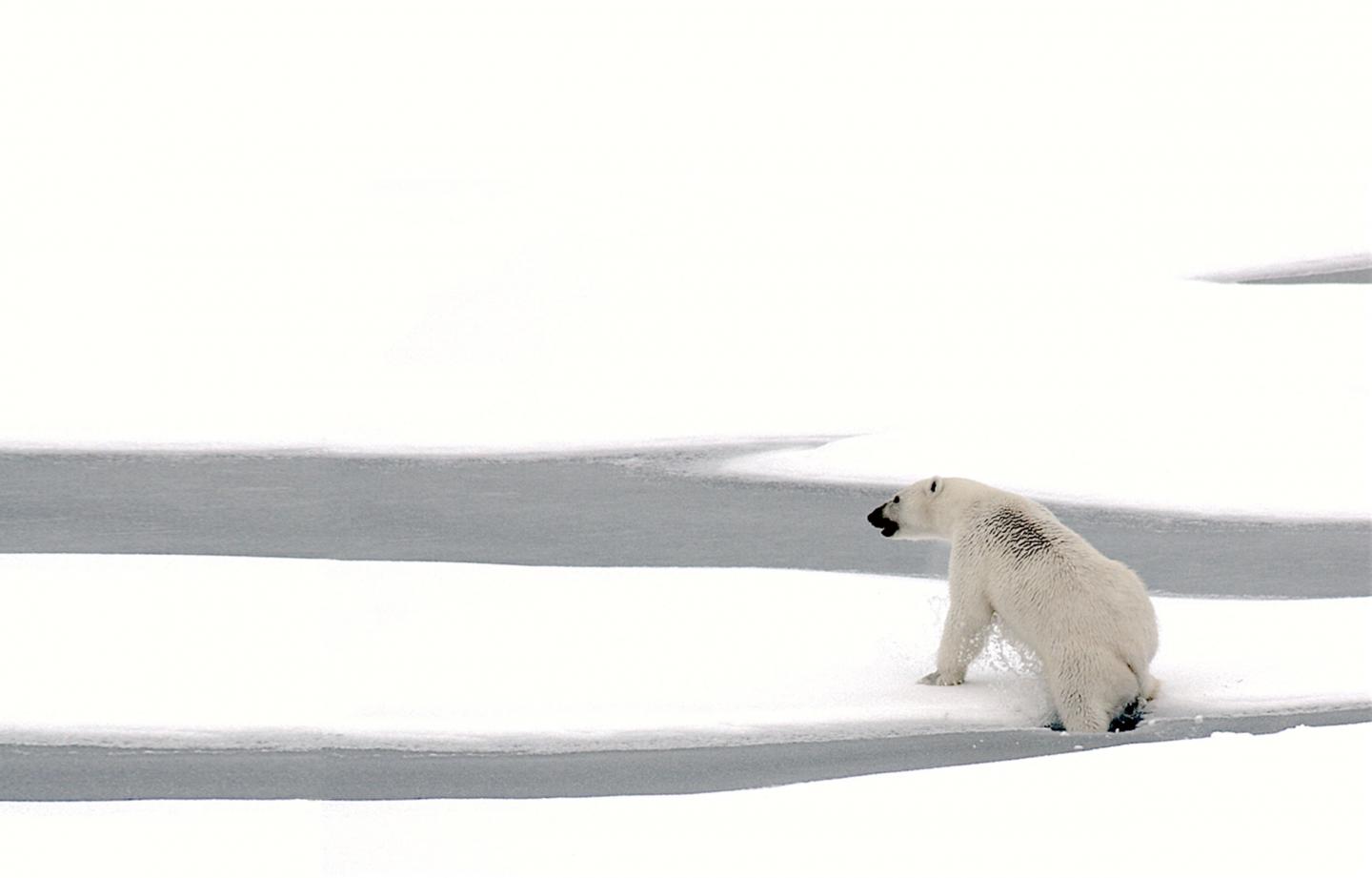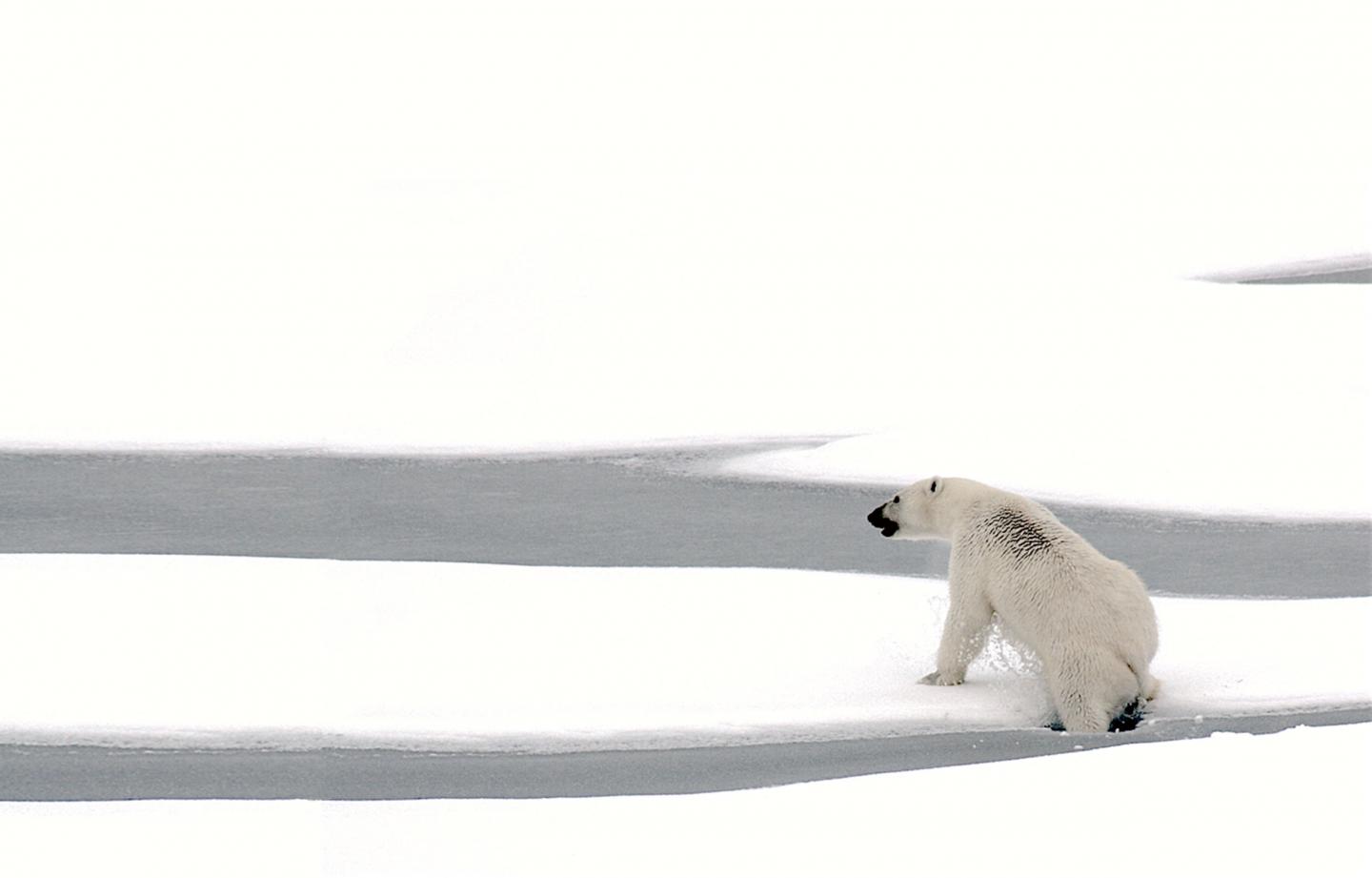
Credit: Kyoto University
Kyoto & San Diego — Is a warmer Arctic a canary of global warming?
Since the 1970s the northern polar region has warmed faster than global averages by a factor or two or more, in a process of 'Arctic amplification' which is linked to a drastic reduction in sea ice.
But then how to explain a similar rapid warming that occurred during the early 20th century, when the effects of greenhouse gases were considerably weaker than today? And what can we prove about the period, given the scarcity of usable data and observations prior to the 1950s?
Now scientists from Kyoto University and UC San Diego have discovered that this phenomenon occurred when the warming phase — 'interdecadal variability mode' — of both the Pacific and Atlantic Oceans coincided. The team's findings appeared recently in the journal PNAS.
"We found that early 20th century sea surface temperatures in the tropical Pacific and North Atlantic had warmed much more than previously thought," explains lead author Hiroki Tokinaga of Kyoto.
"Using observations and model simulations, we've demonstrated that rising Pacific-Atlantic temperatures were the major driver of rapid Arctic warming in the early 20th century."
Previous explanations for early Arctic warming have including decreased volcanic aerosols and increased solar radiation, but none of these have been able to simulate observed conditions from the period.
Tokinaga's team found that when the interdecadal rise in sea surface temperatures was included in simulation calculations, the results properly reflected early Arctic conditions.
"Coupled ocean-atmosphere simulations also support the intensification of Arctic warming," continues Shang-Ping Xie of UCSD, "which was caused by a concurrent, cold-to-warm phase shift of Pacific and Atlantic interdecadal modes."
The researchers explain that these new findings can help constrain model climate projections over the Arctic region.
"It is likely that temperatures in the Arctic will continue to rise due to anthropogenic global warming," concludes Tokinaga. "Our study does not deny this. We are rather suggesting that Arctic warming could accelerate or decelerate due to internal variability of the Pacific and the Atlantic."
"It is a challenge to accurately predict when the next big swing of multidecadal variability will occur. Careful monitoring is essential, given the enormous impact on the Arctic climate."
###
The paper "Early 20th-century Arctic warming intensified by Pacific and Atlantic multidecadal variability" appeared 30 May 2017 in the Proceedings of the National Academy of Sciences of the United States of America, with doi: 10.1073/pnas.1615880114
Kyoto University is one of Japan and Asia's premier research institutions, founded in 1897 and responsible for producing numerous Nobel laureates and winners of other prestigious international prizes. A broad curriculum across the arts and sciences at both undergraduate and graduate levels is complemented by numerous research centers, as well as facilities and offices around Japan and the world. For more information please see: http://www.kyoto-u.ac.jp/en
Media Contact
Raymond Kunikane Terhune
[email protected]
81-757-535-728
@KyotoU_News
http://www.kyoto-u.ac.jp/en
############
Story Source: Materials provided by Scienmag





